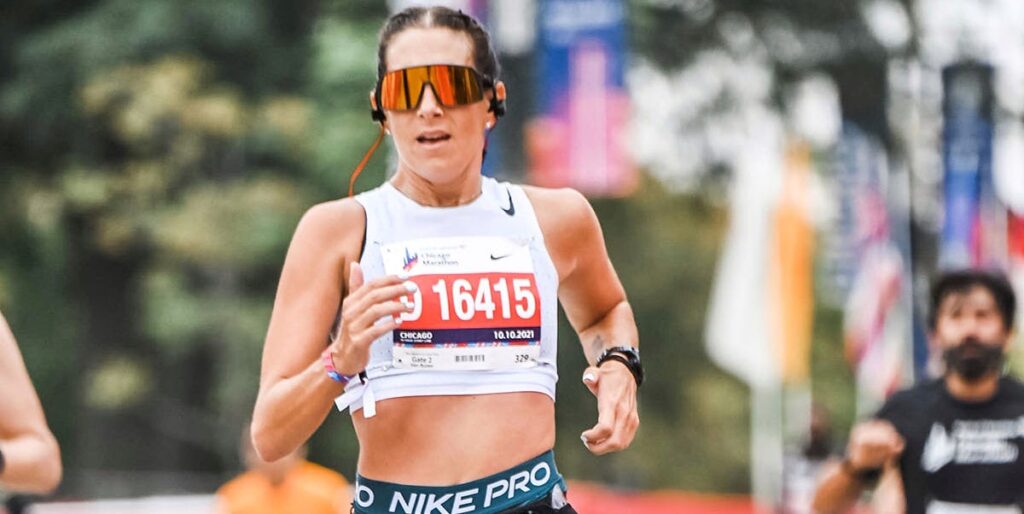Experiencing a disappointing finish at the 2020 L.A. Marathon, I quickly recognized that my struggles were rooted in nutrition rather than just physical training. Facing an upper respiratory infection combined with fatigue, it felt reminiscent of the exhausting mile stretches of the race that most runners dread. Despite my fervent dedication to tracking metrics like heart rate and VO2 max, I neglected to prioritize calorie intake, an essential aspect of effective marathon training.
Active women aged 19 to 30 need up to 2,400 calories daily, while active men aged 19 to 35 require around 3,000 calories according to the USDA’s Dietary Guidelines for Americans. Consuming barely 2,000 calories—largely due to unhealthy habits of eating at my computer—was likely undermining my performance. Recognizing this critical oversight initiated a transformation in my approach to nutrition.
Utilizing Technology for Nutrition Optimization
With newfound awareness of my under-fueling, I began to explore advanced tools and wearables designed to provide personalized insights for improving performance through nutrition. Continuous glucose monitors (CGMs) offer real-time feedback on glucose levels and their fluctuations tied to diet and exercise. This approach, long utilized by individuals with diabetes, holds potential for non-diabetic athletes too.
For instance, using Levels, I discovered how my glucose levels were affected post-meal and even overnight. A few days into monitoring, I noted my blood sugar dropping significantly during the night, pointing to inadequate glycogen stores and signaling a need for better nutritional habits. As Maddie Alm, a registered dietitian, noted, being under-fueled can lead to feelings of exhaustion during training, which is why understanding one’s nutrition is crucial.
The Impact of Nutritional Deficiencies
Low energy and early onset of fatigue during runs were clear indicators of nutrient deficiencies. This revelation led me to undergo a blood panel through InsideTracker, a service favored by athletes for biomarker assessments. The results revealed deficiencies in essential nutrients that significantly affect energy and endurance, including vitamin D, B12, and iron. Such deficiencies can compromise not just performance but overall health and well-being.
According to Alm, deficiencies in these nutrients can lead to subpar performance and hinder recovery. For instance, iron plays a pivotal role in transporting oxygen in the blood, and its deficiency means that workouts may require more effort and yield less satisfaction. Consequently, rectifying these deficiencies became a priority leading up to the 2021 Chicago Marathon.
Creating a Structured Nutrition Plan
Guided by insights from my blood tests, I adopted a structured nutrition plan focusing on consuming sufficient calories and necessary supplements, particularly vitamins and minerals. This included a regimen of meals every three hours while ensuring proper hydration levels. I enhanced pre- and post-run fuel to meet the demands of my training schedule. Ten days before the marathon, an impressive follow-up blood test demonstrated substantial improvements in my nutrient levels—signifying my approach was yielding positive results.
This meticulous attention to hydration was also insightful. Using the Gatorade Gx Sweat Patch, I measured my sweat loss and sodium levels to maintain proper hydration, an element crucial for sustaining performance. Tracking my hydration was a game changer as it prepared me to adapt my water intake and electrolyte consumption during runs.
The Path to Performance Optimization
The culmination of these nutritional adjustments paid off during the Chicago Marathon, where I achieved a personal best by gaining eight minutes on my time. Remarkably, my recovery time was also significantly improved, evidencing that the changes made were effective. As I reflect, the journey underscores a foundational truth: nutrition cannot be overlooked in athletic performance. It’s vital to pay attention to what supports your training and energy needs.
Transitioning from neglecting nutrition to embracing technology, nutrition tracking devices, and tailored meal plans not only transformed my training approach but also made a lasting impact on my health and performance strategy. Overall, understanding the intricacies of diet, hydration, and nutrient timing is essential for any athlete aiming for optimal performance in their races.
